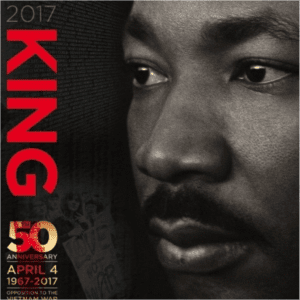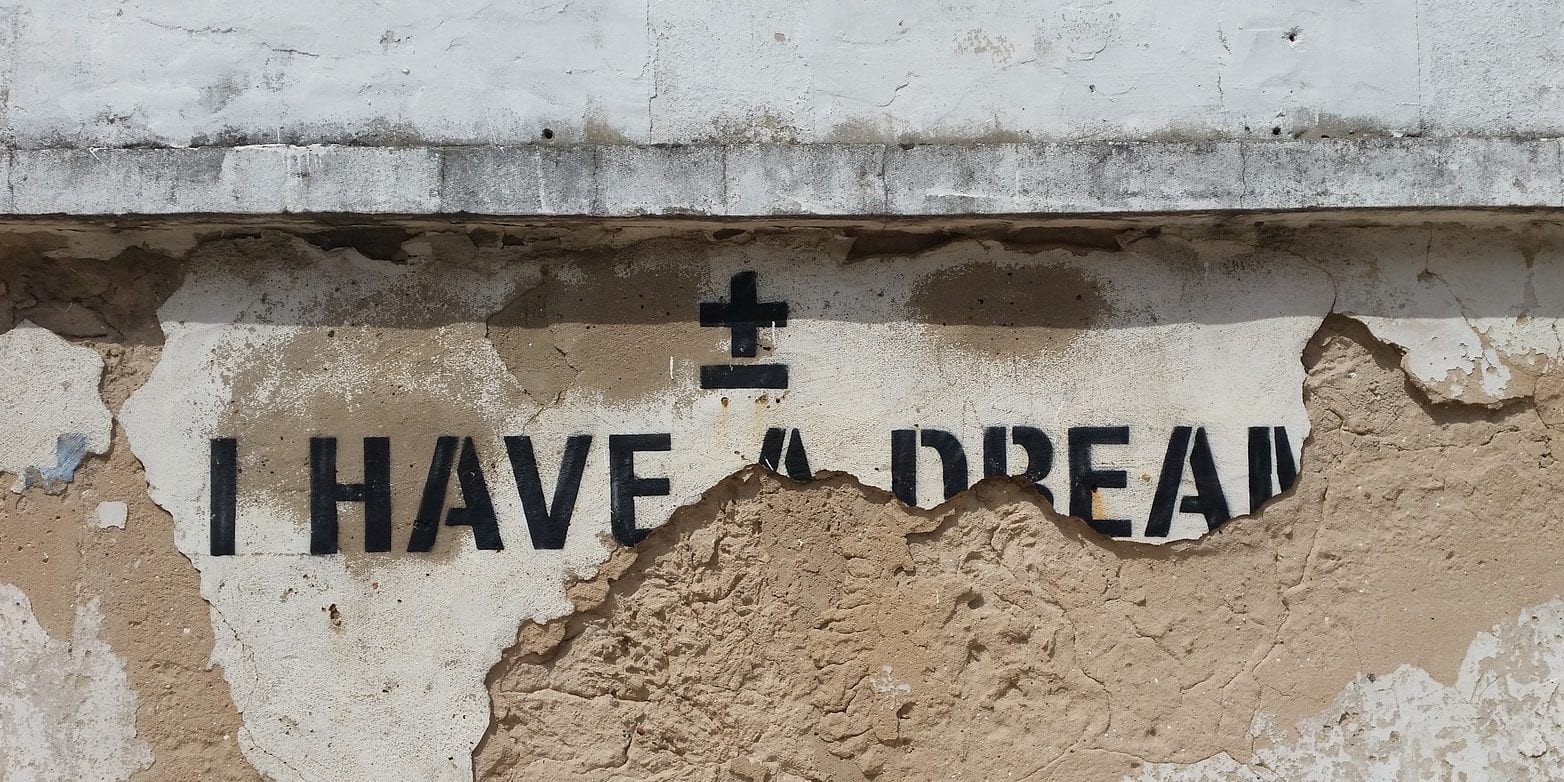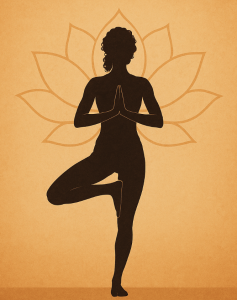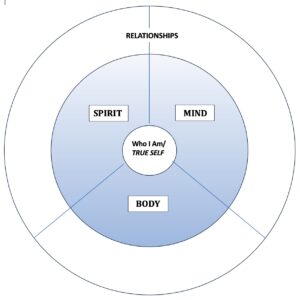Today, we celebrate the U.S. federal holiday honouring Martin Luther King, Jr. In 1963, this visionary ecumenical leader and equal rights activist penned the famous “I Have a Dream…” speech, excerpted below.

I have a dream that one day this nation will rise up, live out the
true meaning of its creed: “We hold these truths to be self-evident, that all men are created equal.” … I have a dream that my four little children will one day live in a nation where they will not be judged by the color of their skin but by the content of their character.
… This will be the day when all of God’s children will be able to sing with new meaning —
“My country, ’tis of thee,
sweet land of liberty,
of thee I sing.
Land where my fathers died,
land of the pilgrim’s pride,
from every mountainside,
let freedom ring.”
Barely two decades earlier, the 1945 signing of the Charter of the United Nations enshrined the universal values of freedom, peace, social progress, equal rights and human dignity. Today, the U.N.’s 192 member nations continue to share these optimistic visions even though past and present human behaviour might suggest otherwise. Arguably, King, Jr. and the U.N. would agree that a universal set of human values acts as the foundation from which conscious global intention and action can emerge. As UN Secretary-General Kofi Annan stated in his 2003 lecture on global ethics —
Every society needs to be bound together by common values, so that its
members know what to expect of each other and have shared principles
by which to manage their differences without resorting to violence.
That is true of local communities and of national communities. Today, as
globalization brings us all closer together, and our lives are affected almost
instantly by things people say and do on the far side of the world, we also
feel the need to live as a global community. And we can do so only if we
have global values to bind us together.
Research continues to confirm that building agreement on a set of shared values, whether as a planet, nation, organization or team, has the significant benefits of:
- focusing attention and action by guiding behaviour toward a desired future
- creating understanding by uncovering common ground as well as diversity
- growing tolerance and respect by accepting differences rather than disproving them
- balancing perspectives by choosing a win-win-win for people, planet, prosperity
- optimizing creative and effective outcomes by integrating intuition/emotion and intellect/reason
- evolving trust by defining institutional and interpersonal agreements
- building community by developing humane relations in order to co-exist
Effective businesses organize around what is considered valuable and call this their value proposition. So, it is not a huge leap for global society to recognize the significance of organizing around what it deems as valuable. The question remains, “What universally shared values are foundational for the prosperity of people and planet?” Answering this question has everything to do with accepting that our emergent experience constitutes a New Normal, and a good deal of the uncertainty experienced in this New Normal is attributable to the shifting nature of our values.
As with so much of what surrounds us today, our values are adapting and evolving to reflect our changing environments and experiences. In the midst of this creative emergence, we, as a planet, find ourselves with differentiated but not integrated belief systems. This differentiation adds depth of meaning — the opportunity to deepen our understanding of self and other — but it is the forming of universal values across individuals and communities that lays the necessary unifying foundation for a sustainable new world order.
With this purpose in mind and “to include as many important truths from as many disciplines as possible,” Ken Wilber (2000) mapped all the world’s cultures “important but partial truths” into an integrated picture of humanity. Within his “universal smorgasbord,” Wilber posed the question “Where do we finally place our ultimate trust for the really important questions?” In order to answer this question, Wilber affirms, our sense making process must evolve, over the course of our lifetime, through the following broad stages:
[stage one] – the human at birth is not yet socialized into any sort of
moral system (it is “pre-conventional”);
[stage two] – the human then learns, from itself and from others, a
general moral scheme that represents the basic values of the society
it is raised in (it becomes “conventional”); and
[stage three] – with even further growth, the individual may come to
reflect on society and thus gain some modest distance from it and
gain a capacity to criticize or reform it (the individual is to some
degree “post-conventional”).
Ken Wilber, Sex, Ecology and Spirituality
As Wilber specifies, in this post-conventional stage of moral development, humanity is able to universally agree across a shared set of values and orient people and planet around what is important to being and becoming.
However, this was not the case in the Modern or Enlightenment Age (18th century), often coined the Age of Reason. In that time, empirical sciences crowded out consciousness, aesthetics and morals stripping the world of value, and as Alfred Whitehead (1925) stated, leaving “a dull affair, soundless, scentless, colorless; merely the hurrying of material, endlessly meaninglessly.” Wilber agreed.
And if you think the great it-domain is the only reality, then you will
maintain that all values and all virtues are “merely subjective.” That
is, they are personal choices not anchored in any sort of substantive
reality. You will not see that depth is intrinsic to the Kosmos. You will
not see that value is intrinsic to the Kosmos. You will not see that
consciousness is intrinsic to the Kosmos. Ken Wilber (2000)
In this current Post-Modern Age of the New Normal, there is a general assertion that value in the form of knowledge and truth emerges from social, historical or political discourse and agreed-upon interpretation. This shared belief led to a much broader definition of what humans consider valuable. In our human evolution over the past two centuries, the act of living became one of equally honouring and balancing science (nature), aesthetics (consciousness) and morals (culture) — the respective values of which Wilber and other post-modern philosophers liken to be truth, beauty and goodness.
Arguably, Martin Luther King, Jr.’s global vision for triumphing over poverty, racism, war and violence” was a call to enacting truth, beauty and goodness. As King stated during his too short lifetime, we will have to choose whether to “walk in the light of creative altruism or the darkness of destructive selfishness.”
Consider one act of truth, beauty and goodness you could enact today in dedication to Martin Luther King, Jr.
If you want more on living truth, beauty and goodness, click here.





